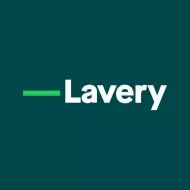In collaboration with Victoria Cohene
Overview of Bill C-474
In the first quarter of 2013, Liberal MP John McKay sponsored the first reading of Bill C-474 in Canada's Parliament which, according to him, is meant to fight corruption, encourage transparency and promote increased accountability within mining corporations. Referred to as the "Sunshine Bill", McKay explains that its purpose is, "to shine light on the whole business of murky payments that go on in some transactions with respect to the obtaining and retaining of mining licenses".
In accordance with Bill C-474, corporations engaging in the development of oil, natural gas or minerals would be required to submit an annual transparency report to both the Minister of Foreign Affairs and the Minister of Natural Resources. The report must disclose all payments made by the corporation to a foreign government for the purpose of furthering mining, oil or gas industry activities. This information must be independently audited and will be publically available, similar to the recently created registry of lobbyist. Subsequently, the Minister of Natural Resources may decide to conduct an investigation into the circumstances relating to certain payments. Failure of corporations to comply therewith can result in hefty fines, ranging between $20,000 and $5,000,000.
From a Bill to a Law
Bill C-474 is a private member's bill; it has been introduced in the House of Commons by a member of parliament who is not a cabinet minister. These bills seldom become a law. However, Bill C-300, also tabled by John McKay in 2010, was only narrowly out-voted even though it received a unanimous show of opposition from the mining industry. That bill required mining companies to comply with human rights and environmental standards. It was criticized for having the potential to trigger an exodus of those companies from Canada and for giving competitors an outlet to make frivolous or vexatious claims against Canadian companies.
Bill C-474 may raise concerns as well. Companies engaging in suspicious payments may fear the imposition of tighter laws, the consequences of non-compliance and the risk of losing business opportunities. Others may simply fear more bureaucracy. By contrast, some companies may subscribe to the view that transparency will improve their competitive advantage by enhancing their reputations.
The National and International Context
Bill C-474 has not been created in a vacuum. In fact, our neighbors to the south have already adopted a similar law. In 2010, the U.S. congress passed legislation entitled the Cardin-Lugar amendment, requiring all extractive companies to publish the payments they make to U.S. and foreign governments, in the countries where they operate. This information must be disclosed in an annual report to the U.S. Securities and Exchange Commission. Other countries such as Australia, the UK and the EU are also striving for transparency within the same industry.
Similarly, on the international front, the Organization for Economic Co-operation and Development (OECD) has implemented guidelines, including the Convention on Combating Bribery of Foreign Public Officials in International Business Transactions (the "International Convention"), to combat bribery and corruption. The OECD aims to eliminate the offering of bribes to foreign public officials and urges member countries to take responsibility for the activities of their enterprises. Some Canadian mining companies have already committed, in their Code of Ethics, to comply with these international guidelines.
Pursuant to the International Convention, laws in both Canada and the U.S., namely the Corruption of Foreign Public Officials Act (the "Canadian legislation") and the Foreign Corrupt Practices Act (the "U.S. legislation"), respectively, have been adopted.[1] These laws make it illegal for individuals and businesses, generally, to make payments to foreign government officials for the purpose of obtaining and retaining business. However, unlike Bill C-474, the Canadian legislation does not include a reporting requirement, therefore, making it more difficult to enforce. Regardless, certain public companies in Canada have already included in their Code of Ethics undertakings to refrain from making improper payments, in accordance with both the U.S. and Canadian legislation.
Sunrise, Sunset?
Although we can only speculate as to whether the sun will rise or set on Bill C-474, certain facts speak to its relevance. For one, it has been introduced at a time where stories of corruption regularly headline our media. Secondly, legislation already exists to combat bribery worldwide. Finally, many companies have already implemented internal policies that meet its objectives. Consequently, mining companies that engage in the practice of regulating payments may want to adjust their business methods sooner rather than later to avoid potential government intervention, media scrutiny and liability down the road.
Footnote
[1] On February 5, 2013 Bill S-14, An Act to amend the Corruption of Foreign Public Officials Act, was introduced and it proposes to make significant changes to the Canadian legislation, including the elimination of the facilitation payment exemption from the definition of bribe.
The content of this article is intended to provide a general guide to the subject matter. Specialist advice should be sought about your specific circumstances.

